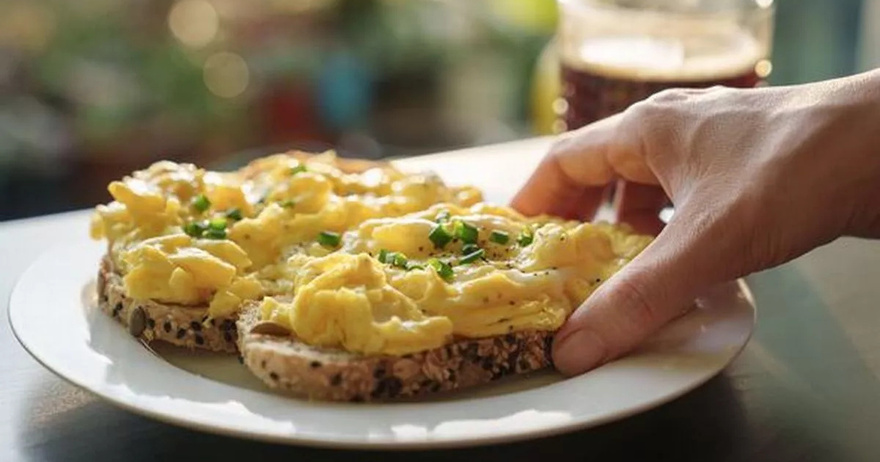Christmas is a time for indulging but once we move into the New Year with resolutions to watch our waistlines, the thought of giving up butter, milk and cream will be daunting.
But fear not, foodies. A recipe has surfaced for the “creamiest” scrambled eggs that skips the dairy without skimping on taste. While traditional methods often call for these ingredients to add a rich flavour and texture, an expert insists you can whip up guilt-free scrambled eggs that are just as indulgent.
Contrary to popular belief, this culinary whizz suggests that the secret to silky eggs isn’t about the heat of the pan – a point many have stressed before. Instead, it’s all about steam, time and the choice of pan.
James, the man behind the food blog Fork and Twist, is sharing his game-changing advice for egg enthusiasts everywhere. According to him, achieving the perfect creamy scramble doesn’t hinge on high heat or constant stirring – common tips that he believes fall flat.
James advises: “Here’s the secret: steam and time. Set a heat-proof bowl over a saucepan with an inch and a half of simmering water in the bottom and gently scramble the eggs.”
If you’ve ever tried melting chocolate on the hob, you’ll likely be aware of this method. But when using it to cook eggs, it’s crucial to let the bowl of water become hotter than you would typically allow.
Chef James explains that once the water is sufficiently warm, you can “gently cook the eggs slowly until they become thick, creamy and scrambled”. This trick might seem straightforward, yet it really shines when you’re scrambling three or more eggs, making sure the bowl isn’t in contact with the low level of simmering (not boiling) water.
When it comes to mixing the eggs, James suggests a light touch, especially initially. As the eggs thicken and scramble, however, consistent stirring is key to prevent overcooking.
James emphasises that as the process nears its end, it’s critical to stay vigilant: “These need a good amount of attention towards the end. Do not leave these unattended as they will more than likely overcook.”
Wendy’s Reacts to Backlash Over Joke About Leaving Katy Perry in Space: ‘Always Bring a Little Spice’
Michael Bublé Is Living The Good Life With His Family In A Multi-Million Dollar Mansion In His Hometown.
Dolly Parton’s best duet yet: ‘There Was Jesus’
Grooving Groom Daniel Lewis’s Epic Dance Entrance With His Boys Makes Wedding Goes Viral.






























